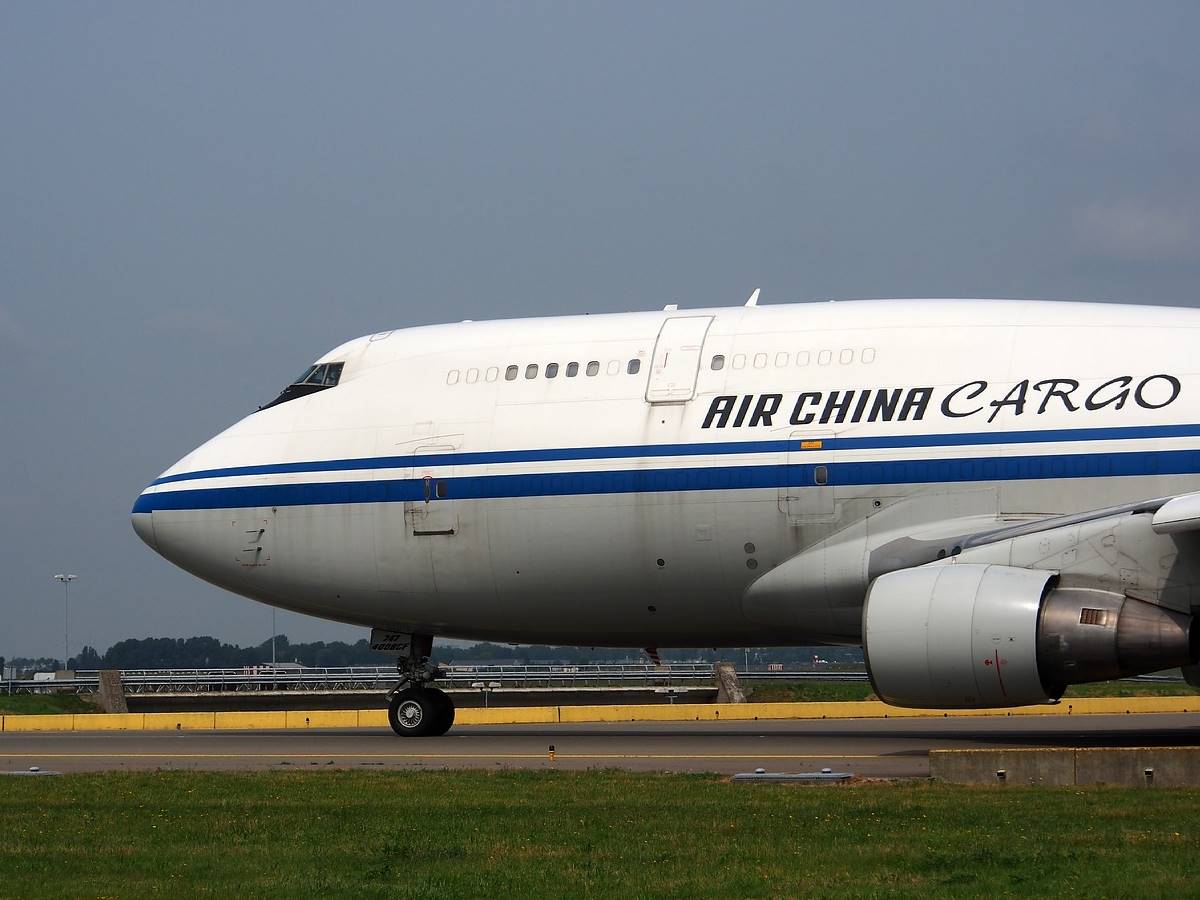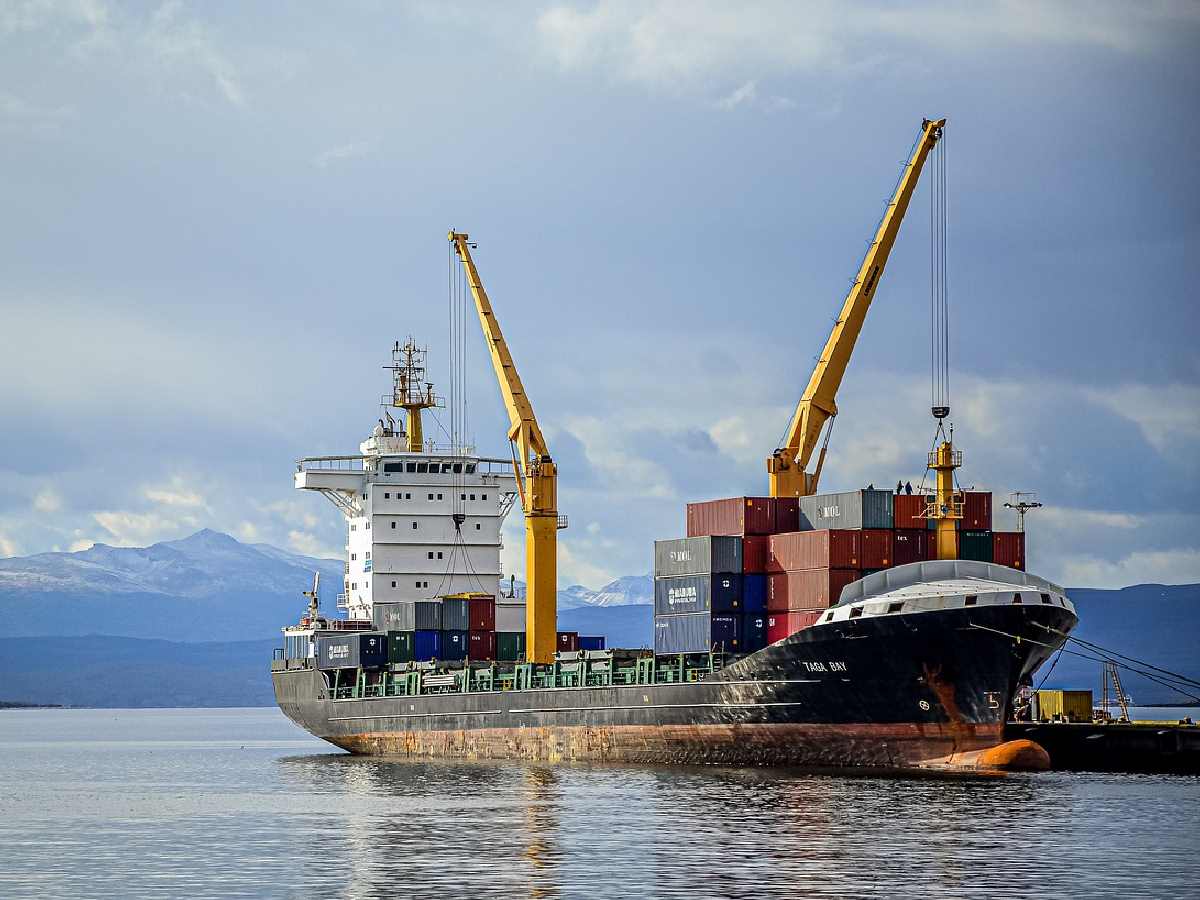Saudi Arabia is the largest consumer market in the Middle East and heavily relies on imports. The consumer goods market in Saudi Arabia is in its early development stage, characterized by extensive business operations and a significant disconnect between the consumer market and upstream production processes. Due to low domestic production levels and slow feedback of demand information, commercial development in the country has been sluggish.
Of all imported goods in the Middle East, as much as 60% is consumed in Saudi Arabia. Saudi Arabia is an important country in China's Belt and Road Initiative, with bilateral trade reaching $63.33 billion in 2018. For 18 consecutive years, Saudi Arabia has been China's largest trading partner in key regions.
Do you have shipping to Saudi Arabia?
Shipping to Saudi Arabia——A must-see shipping guide for shipments
If so, have you encountered any difficulties in dealing with them?
Then this article will provide you with any knowledge that will be useful to you from China to Saudi Arabia in terms of customs clearance, shipping methods, costs, etc.
Trust me, after reading it, you will become an expert in shipping.

Import and export policy Saudi Arabia
Saudi Arabia's business conditions are relatively good within cross-border e-commerce, and the business environment is relatively relaxed. Saudi Arabia has no foreign exchange controls, free flow of funds in and out, and no quota restrictions or trade barriers, which is beneficial to the development of international trade.
Trade Policy
● The Saudi Ministry of Commerce and Investment is responsible for formulating and implementing trade policies, business registration, and engaging in multilateral and bilateral consultations with other countries and international economic and trade organizations. Saudi Customs is responsible for managing the customs clearance of imported and exported goods.
● According to the "Saudi Commercial Agency Regulations and it's Implementing Rules," foreign companies can only sell goods in Saudi Arabia through agents or distributors.
● Saudi Arabia requires a mandatory certification for goods related to public safety before they can enter the Saudi market. These goods are categorized into five categories, including toys, appliances and electronic devices, automobiles, chemical pharmaceuticals, and other commodities.
● In Saudi Arabia, the sale of consumer goods is one of the business sectors that is not open to foreign investors.
● Member states of the Arab League that have signed trade promotion agreements can enjoy preferential tariffs, while Arab countries with bilateral economic and trade agreements have even more favorable tariff rates.
Import duty policy Saudi Arabia
● For importing goods into Saudi Arabia, import duties are calculated and paid based on the value of the goods (Cost, Insurance, and Freight - CIF).
● The tariff rates in Saudi Arabia range from 0% to 50%, with an average tariff rate of 4.58%. Certain goods are exempt from tariffs, such as books, laptops, and other electronic products.
● Saudi Arabia does not levy value-added tax (VAT) on imported goods.
● There is no minimum threshold for import duties in Saudi Arabia. Regardless of the value of the imported goods, customs duties are levied.
Exporting to Saudi Arabia - Important Considerations
-
Customs Documentation: Bill of lading, packing list, invoice, and Certificate of Origin (CO) should be prepared according to the customer's requirements.
-
If additional instructions are required for the goods, Saudi Arabia only accepts them in English or Arabic.
-
For goods entering Saudi Arabia, the "Made in China" label must be visibly and permanently affixed to the packaging or product in a non-removable manner. Ordinary stickers or adhesive labels are not permitted.
-
All handheld power tools or household items must have instruction manuals in Arabic.
Saudi Arabia does not accept the importation of electronic cigarettes, including electronic hookahs; if found, the originating station will be heavily fined and liable for fines.
Air freight to Saudi Arabia
If you need shipping to Saudi Arabia, air freight may be the right choice. However, you will need to bear a higher cost as air freight is usually much more expensive than sea freight.

Major airports in Saudi Arabia
King Khalid International Airport
King Khalid International Airport in Riyadh, also known as Riyadh Airport, is one of the busiest airports in Saudi Arabia. It is located approximately 35 kilometers north of the city center and serves as a major hub for air travel in the region.
Among the flight routes between China and Riyadh, King Khalid Airport provides one of the few direct air cargo connections from Guangzhou Baiyun Airport in China. These flights are typically operated by Chinese carrier Guangzhou Baiyun International Airport and supported by Saudi Arabian cargo operators.
The International Air Transport Association (IATA) code for King Khalid International Airport is RUH. This four-letter code uniquely identifies the airport in the aviation industry, allowing airlines, airports, and other relevant organizations to recognize and reference it.
King Abdulaziz International Airport
King Abdulaziz International Airport is one of the main airports in Saudi Arabia. Located in Jeddah, the second-largest city in the country, it serves as a major transportation hub for pilgrims traveling to the holy cities of Mecca and Medina.
The International Air Transport Association (IATA) code for King Abdulaziz International Airport is JED. This four-letter code is widely used in the aviation industry to uniquely identify the airport.
Dammam Airport
Dammam Airport, officially known as Prince Mohammad bin Fahd International Airport, is one of the main airports in the eastern region of Saudi Arabia. It is located near the city of Dammam, the third-largest city in the country, and serves as a major aviation hub in the region.
The International Air Transport Association (IATA) code for Dammam Airport is DMM. This four-letter code is widely used in the aviation industry to uniquely identify the airport.
What is the cost of air freight from China to Saudi Arabia per kilogram?
Air freight charges are calculated based on the actual weight and volumetric weight, and the higher of the two is used for billing. Actual weight refers to the actual weight of the shipment, while volumetric weight is the weight calculated based on the volume.
The general formula for calculating volumetric weight is:
-
Volume (m³) x 167
-
Volume (cm³) / 6000
For example, if the dimensions are all 1 meter:
-
1 x 1 x 1 x 167 = 167kg
-
100 x 100 x 100 / 6000 = 166.67 = 167kg
Decimal points in freight calculations are always rounded up, not down. Even if it is 166.01kg, it will be calculated as 167kg.
What is the estimated time for air freight from China to Saudi Arabia?
The majority of the time consumed in air freight transportation is related to cargo consolidation/deconsolidation and the customs clearance process at the origin and destination airports.
However, as a general guideline, air freight from Shanghai to Dammam usually takes around five days, while air freight from Shanghai to Riyadh takes approximately three days. For other routes, the subsequent transportation and customs clearance from China to Saudi Arabia typically ranges from 6 to 9 days, as listed below:
● Shanghai to Jeddah: 7 days
● Guangzhou or Shenzhen to Dammam, Jeddah, or Riyadh: 8 days
● Chengdu to Dammam, Jeddah, or Riyadh: 9 days
● Beijing to Dammam, Jeddah, or Riyadh: 6 days
● Qingdao to Jeddah: 8 days
Please note that these are approximate timeframes and can vary depending on various factors, such as airline schedules, customs processes, and any unforeseen circumstances. It is advisable to consult with the specific air freight provider for a more accurate estimation based on your specific shipment details.
Sea freight to Saudi Arabia
Sea freight from Saudi Arabia is one of the more popular transport options at present. Compared to air freight, the advantages of Saudi Arabia's sea freight are also relatively obvious. For example, the carrying capacity is large, the cost is lower, etc., and the choice of sea freight is also more flexible.

Major seaports in Saudi Arabia
Jeddah Islamic Port
Jeddah Islamic Port is located in Jeddah, Saudi Arabia, and is one of the largest ports along the Red Sea coast. It is also one of the major trade ports in Saudi Arabia.
Jeddah Islamic Port serves as a primary maritime gateway for Saudi Arabia, connecting trade routes between the Middle East and the rest of the world. It plays a significant role in international trade, providing crucial logistics support for imports and exports of Saudi Arabia and neighboring countries.
Jeddah Islamic Port plays a crucial role in the trade and logistics of Saudi Arabia, providing essential support for domestic and international trade as well as transportation for pilgrims.
Dammam Port
Dammam Port, located in Dammam, Saudi Arabia, is one of the major seaports in the eastern region of the country.
Dammam Port serves as a primary trade gateway for the eastern region of Saudi Arabia, connecting trade routes in the Persian Gulf and the Arabian Sea. It is a significant port for both exports and imports, providing crucial logistical support for international trade in Saudi Arabia and the surrounding regions.
Dammam Port is also a vital export port for Saudi Arabia's petroleum industry. The region is one of the largest oil-producing areas in the world, and Dammam Port plays a critical role in the transportation of oil and petroleum products.
The operations and management of Dammam Port are overseen by the Saudi Arabian Ports Authority, ensuring the efficient flow of goods and maritime services.
Precautions for Export Operation in Sea Freight
The Chinese product name stated on the customs declaration must be verified against the customs commodity code to ensure consistency. Additionally, all necessary customs documentation should be processed and provided in accordance with regulatory requirements.
All customs documents must have consistent and accurate information.
Customs may conduct inspections on the declared goods to verify if they match the information stated on the customs declaration.
During peak shipping seasons, vessels may be prone to overloading. Therefore, it is advisable to complete the declaration procedures in advance to avoid being bumped off by the shipping company.
Each original bill of lading issued must bear a signature and seal.
How long does it take to ship from China to Saudi Arabia by sea?
Shipping to Saudi Arabia, the transit time for sea freight from China depends on several factors, such as:
● Whether you choose to ship using LCL (Less than Container Load) or FCL (Full Container Load) services.
● Smooth customs clearance for your goods.
● Whether your shipment follows a direct route or has intermediate stops.
● The steamship's schedule, whether it is fast or slow.
Due to the many variables involved, it is not easy to accurately predict the exact duration of sea freight between the two countries. However, to give you some idea, here are some examples from our schedule:
● Qingdao to Jeddah: 36 days for FCL (Full Container Load).
● Guangzhou to Dammam: 20 days for FCL, 42 days for LCL (Less than Container Load).
● Guangzhou to Jeddah: 36 days for FCL, 40 days for LCL.
● Shanghai to Dammam: 32 days for FCL, 31 days for LCL.
● Tianjin to Dammam: 40 days for LCL.
● Xiamen to Dammam: 34 days for LCL.
Huangpu to Dammam or Jeddah: 20 days for FCL, Shanghai or Shenzhen to Jeddah: 36 days for FCL.
Express to Saudi Arabia
If you want to send a package to Saudi Arabia, you can choose to use international courier companies such as DHL, FedEx, UPS, etc. These companies offer international courier services and can deliver packages to Saudi Arabia as well as other destinations worldwide.

Some suggestions for each express export
Exporting to Saudi Arabia via ARAMEX courier
According to Saudi customs regulations, all shipments to Saudi Arabia must complete customs clearance within 15 days of arrival at Saudi customs. If clearance cannot be completed within the specified timeframe, the shipment will be returned, and all associated costs will be charged to the customer.
The shipment should include the following items:
● Waybill
● Detailed and accurately declared commercial invoice
If local customs require clearance-related documentation, ARAMEX will directly notify the recipient to handle the process. If the recipient fails to complete the clearance within 15 days, the shipment will be returned. Therefore, before shipping, the customer should ensure that the recipient's contact phone number is correct and valid. This will facilitate timely communication with the recipient to address clearance issues and avoid delays leading to the return of the shipment.
Exporting to Saudi Arabia via DHL courier
For items with a declared value equal to or greater than $200 USD, an Importer of Record (IOR) registration certificate is required for customs clearance in Saudi Arabia.
● When the recipient is an individual, the following documents are needed: a copy of the recipient's Saudi Arabian Resident ID or valid residence permit "IQAMA."
● When the recipient is a company, a copy of the valid Commercial Registration (CR) is required.
To avoid delays or the return of the shipment, it is recommended that the originating country assists in indicating the CR or ID number on the waybill and invoice.
Exporting to Saudi Arabia via TNT courier
Goods imported into Saudi Arabia (referring to the goods themselves, not the outer packaging) must have a label indicating the country of origin. This label must be clear, legible, and non-removable. It can be engraved, woven, or printed, depending on the material used by the manufacturer. For goods that are not suitable for attaching this label due to their material or size, the outer packaging must have a securely attached label or seal indicating the country of origin.
Any computer, computer accessories, or spare electric motor parts entering Saudi Arabia require certification from the Saudi Standards, Metrology, and Quality Organization (SASO). Otherwise, the goods will not be released from customs and will be returned to the originating station without any prior notice.
China Express to Saudi Arabia prices
China can use various courier services to send packages to Saudi Arabia, such as DHL, TNT, FedEx, ARAMEX Middle East Express, and more.
● For Middle East Express, the general cargo rate is 40 CNY/kg, and special cargo is 50 CNY/kg. It takes approximately six days for delivery to the door.
● For TNT, the rate is 55 CNY/kg, and for shipments over 70 kg, the rate is around 40 CNY/kg. Delivery time is approximately seven days to the door.
● For ARAMEX, the rate is 45 CNY/kg, with a delivery time of 4-7 days.
● For DHL, the rate is 52 CNY/kg for a 70 kg shipment, and for FedEx, the rate is 40 CNY/kg for a 200 kg shipment.
Please note that these rates are provided for reference purposes only and may vary.
How long does it take to transport goods from China to Saudi Arabia?
There is a significant difference in transportation time between air freight and sea freight. For sea freight, whether it's less-than-container load (LCL) or full container load (FCL), the goods usually have to wait for several weeks to reach Saudi Arabia from the departure port in China.
On the other hand, air freight only takes a few hours of transportation time, making it a logical choice if your supply chain relies on fast delivery. However, it's important to note that, similar to sea freight, air freight also requires customs clearance at both ends of its journey. In reality, it takes several days for goods flown from China to reach the recipients in Saudi Arabia.
Conclusion
When it comes to shipping to Saudi Arabia, choosing between air freight and sea freight can be a challenging decision. Air freight is typically faster and suitable for urgent and time-sensitive goods. Sea freight is a more cost-effective and common transportation option, suitable for larger volumes and heavier goods. Therefore, you should consider the nature of your goods, urgency, budget, and specific requirements to decide whether to choose air freight or sea freight for shipping to Saudi Arabia. You can communicate with logistics companies or freight forwarders to gather detailed information about transportation options and make an informed decision based on your needs. If possible, JIKE can serve as your freight forwarding agent. Don't hesitate to reach out to us for any further assistance you may need.
FAQS
| How to handle customs and clearance procedures? |
| Goods transported to Saudi Arabia need to go through Saudi customs for clearance. Proper preparation of compliant and accurate documents and certificates is crucial. You can work with logistics companies or freight forwarders to ensure proper handling of customs and clearance procedures and compliance with relevant regulations and requirements in Saudi Arabia. |
| Are import duties and taxes required to be paid by me? |
| Import duties and taxes are determined based on the nature and value of the goods and Saudi Arabia's import regulations. You may be required to pay the applicable duties and taxes to Saudi customs. It is recommended to consult with logistics companies or freight forwarders to obtain specific information about duties and taxes. |
| How can I track the shipment? |
| Most logistics companies provide shipment tracking services, allowing you to track the progress of your shipment using the provided tracking number on their website. You can also contact the logistics company or freight forwarder for real-time updates on the shipment. |


Consult Our Experts